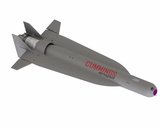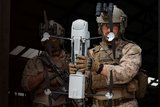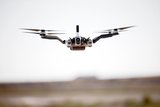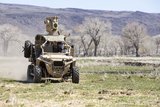Unprecedented Demand for ROV Courses at Market Leading Centre
Demand for training in Remotely Operated Vehicles (ROV) has rocketed in the last 12 months according to new figures from the world's leading commercial dive centre.
The Underwater Centre in Fort William has seen uptake on its ROV courses increase by more than 70% this year, compared to the previous 12 months.
In 2007 the Centre ran a total of seven premium ROV courses - by the end of this year they will have run a total of 12 - this is a 71% increase year on year.
These figures reflect the global demand for ROVs recently highlighted in a report from analysts, Douglas-Westwood, which revealed that expenditure on work class ROV operations had more than doubled since 2002. The energy analysts predict that by 2011, $1.458 billion will have been spent in this sector.
As the demands on energy supplies increase, the oil and gas sector has to seek reserves in areas that demand advanced technology to overcome challenges. The subsea sector is playing an integral role in accessing reserves, and the need for highly trained ROV pliots is at an all time high.
The Underwater Centre in Fort William is on the shore of Loch Linnhe, where depths range from 20 metres to 150 metres in a sheltered location, allowing for training throughout the year, regardless of weather conditions.
Firmly established as the market leader in the provision of sub sea diving and ROV courses, the Centre provides an indepth seven week training programme for ROV pilots.
These Premium ROV courses comprise a four week electronics module and three weeks working ‘hands on' with the Centre's fleet of remotely operated vehicles.
Steve Ham, manager of the Underwater Centre, says there has been an unprecedented increase in the demand for these training programmes.
"The subsea sector continues to flourish at a substantial rate and our market leading position has allowed us to capitalise on this growth," he said.
"As the need to recover hydrocarbons at ever increasing depths continues to grow, so too does demand for remotely operated vehicles and the pilots whose skill and expertise is essential.
"Our unique location and facilities, along with the world class instructors, means that we are the centre of choice for ROV training."
Established in the early seventies, the Centre is the only diving school to be approved for all levels of HSE diver training, from scuba through to closed bell, which includes mixed gas and saturation diving.
The Centre's unique facilities also offer industry relevant conditions for testing new subsea technology. Recent trials have included the world's most advanced rescue submarine and further increasing the capabilities of Nautronix NasNet through water navigation system.
More from Uncrewed Vehicles
-
![Cummings Aerospace showcases Hellhound loitering munition designed for US Army’s LASSO programme (video)]()
Cummings Aerospace showcases Hellhound loitering munition designed for US Army’s LASSO programme (video)
Cummings Aerospace presented its turbojet-powered Hellhound loitering munition at SOF Week 2025, offering a man-portable solution aligned with the US Army’s LASSO requirements.
-
![SOF Week 2025: PDW unveils attritable FPV drone for SOF operations at scale]()
SOF Week 2025: PDW unveils attritable FPV drone for SOF operations at scale
PDW has revealed its Attritable Multirotor First Person View drone at SOF Week 2025, offering special operations forces a low-cost, rapidly deployable platform for strike and ISR missions, inspired by battlefield lessons from Ukraine.
-
![SOF Week 2025: Teledyne FLIR white paper provides guidance on reusable loitering munitions]()
SOF Week 2025: Teledyne FLIR white paper provides guidance on reusable loitering munitions
Teledyne FLIR is highlighting the emerging requirements for 'recoverable and re-usable' loitering munitions across the contemporary operating environment during this week’s SOF Week conference in Tampa, Florida.
-
![SOF Week 2025: Kraken Technology group debuts K3 Scout USV in North America]()
SOF Week 2025: Kraken Technology group debuts K3 Scout USV in North America
High-performance maritime industry player Kraken Technology Group, based in the UK, has used the SOF Week conference in Tampa, Florida this week to debut its K3 Scout uncrewed surface vessel (USV) to the North American market.
-
![Palladyne AI and Red Cat to demonstrate capabilities for autonomous drone swarms to the US military]()
Palladyne AI and Red Cat to demonstrate capabilities for autonomous drone swarms to the US military
Red Cat and Palladyne AI recently conducted a cross-platform collaborative flight involving three diverse heterogeneous drones.
-
Jammer resistant drone designs spark search for countermeasures
The Russia-Ukraine conflict has driven another stage of evolution for drones and the counter measures to defend against them.























